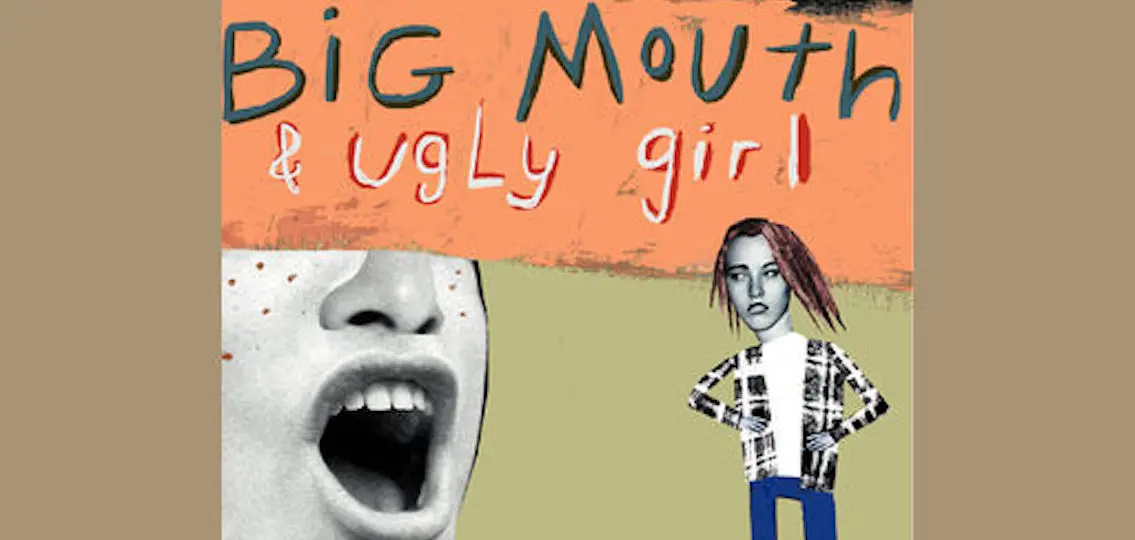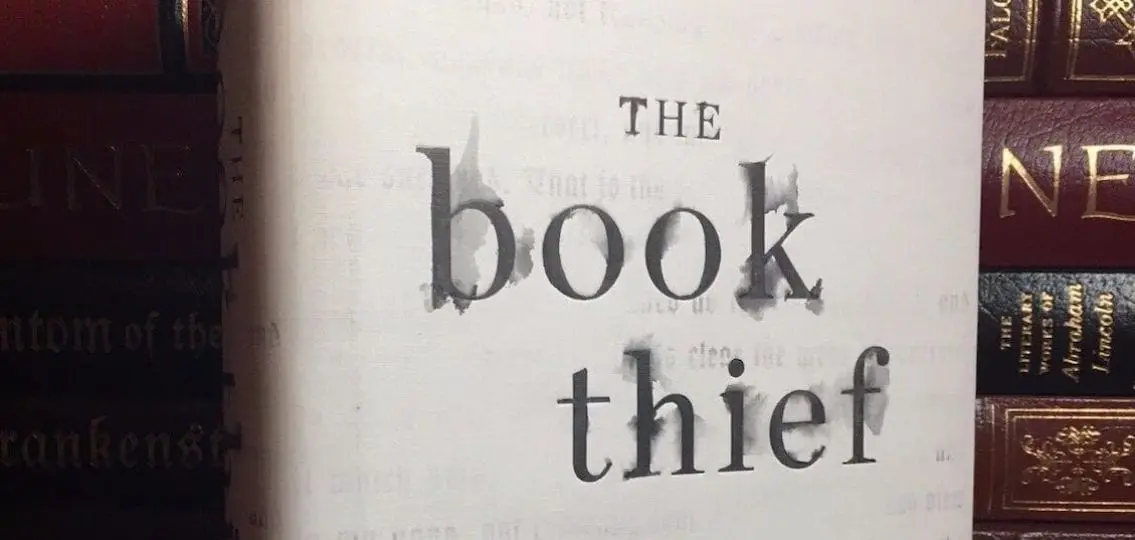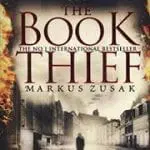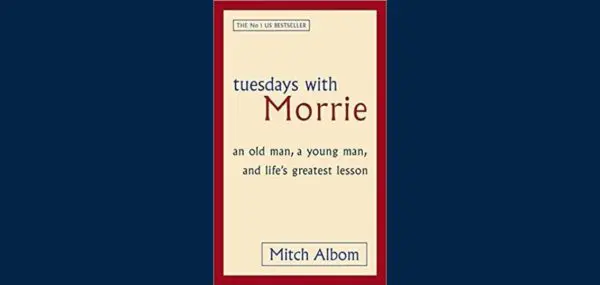TEEN REVIEW | by Katie Harris
I love books. Beyond entertainment and relaxation, the words influence me and offer me solace. This theme is emphasized in The Book Thief, by Markus Zusak. This World War II story begins with a dark and ominous tone, using “Death” as the narrator. Shortly after, however, the characters become more relatable and endearing, helping to illustrate World War II from an entirely new angle. It does not take long for the reader to latch onto the unforgettable cast of characters and beguiling story line.

The story opens with a sinister commentary by Death and follows protagonist Liesel Meminger throughout her life.
Death finds its way onto the train that is transporting Liesel and her younger brother to a foster family. Liesel’s brother dies while on the train. At his modest burial, Liesel steals The Grave Digger’s Handbook after the book falls from the grave digger’s coat, consequently beginning her partiality for thieving books. Ironically, Liesel doesn’t know how to read.
When Liesel arrives at her new home, her foster father, Hans Hubermann, teaches her how to read. Words become a connection between Liesel and Hans. Father and daughter secretly read in the middle of the night, avoiding both Liesel’s chronic nightmares and her strict foster mother. As the pair makes their way through the first book, they find themselves in need of another. Liesel, seeing no other option, steals another book.
Words also become powerful in the form of lies, especially when the Hubermanns hide a Jewish man named Max in their basement despite the heightening Nazi power. Liesel and Max form a bond after realizing that they both suffer from nightmares, and soon the illustrations and words of Max’s own storybooks speak to Liesel. When Max becomes ill, Liesel visits him and continues to read to him, hoping that her words will reach him despite his weakened state.
Beyond Max and Hans, Liesel mostly keeps her words to herself until Germany’s war becomes more serious. Liesel and her family and friends find themselves frequented by air raids, keeping many people together in close quarters for long periods of time. Liesel takes this opportunity to share her words, creating a sanctuary for her family and friends by reading her books aloud.
Markus Zusak’s own unique and descriptive prose speaks loudly to the reader. Zusak illustrates that the power of words can be used in different ways. Although today the power of words may be a forgotten refuge, Zusak’s work is a strong reminder of the comfort that they can provide, even on the darkest days.
PARENT REVIEW | by Jody Podl
Markus Zusak’s novel, The Book Thief, creates a story that both literally and figuratively conveys the power of words. The story begins with Liesel Meminger leaving her family because they have been tagged “Communists,” a word no one in Nazi Germany can survive. Fearing for their safety, Liesel’s mother arranges for a foster family to take her two children. En route, Liesel’s brother dies and is buried in a grave where Liesel finds a book. Liesel’s attachment to words begins when she steals that book from the gravesite.
As the novel progresses, words continue to contain danger and cause irreparable harm.
Through propoganda, the Nazi party persuades Germans that Jews are their enemies. Liesel world collapse as people join the Nazi party and dissent is no longer tolerated.
While words harm, they also nourish. The book Liesel steals at her brother’s graveside becomes the foundation of her life. This book is her prized possession, yet she doesn’t know how to read. Liesel’s foster father, Hans Hubermann, teaches her to read, while showering her with love and support. Liesel yearns to read more, but books are hard to acquire so she begins to steal books whenever an opportunity arises. She finds her next book in the remains of a Nazi book burning. Then she discovers a private library in the mayor’s home and Liesel “borrows” their books. She savors every word.
Words begin to connect Liesel to other people.
Liesel develops a friendship with a Jewish man who is Hubermann’s basement. When Max Vandenburg arrives, he also has a book in hand, Hitler’s autobiography called Mein Kampf. Later, Max paints the pages and writes his own story as a present for Liesel. Ironically, when Max becomes ill, Liesel reads to him every day.
When the war closes in on Himmel Street, words provide an escape. Liesel reads aloud to friends and family in the air raid shelter. As soon as Liesel opens a book, the group becomes transported and soothed by her words. Finally, Liesel survives a surprise bomb raid because she is down in the basement writing her own story. Ultimately, words become Liesel’s salvation, both literally and figuratively.
The author presents us with a cast of endearing and courageous characters, a realistic rendering of Nazi Germany, and a thought-provoking plot that highlights the challenges people face when the political climate conflicts with personal values. For me, however, I was most affected by one girl’s use of words to create rather than destroy. According to Zusak, Liesel “writes her own story—and it’s a beautiful story—through the ugliness of the world that surrounds her.”





